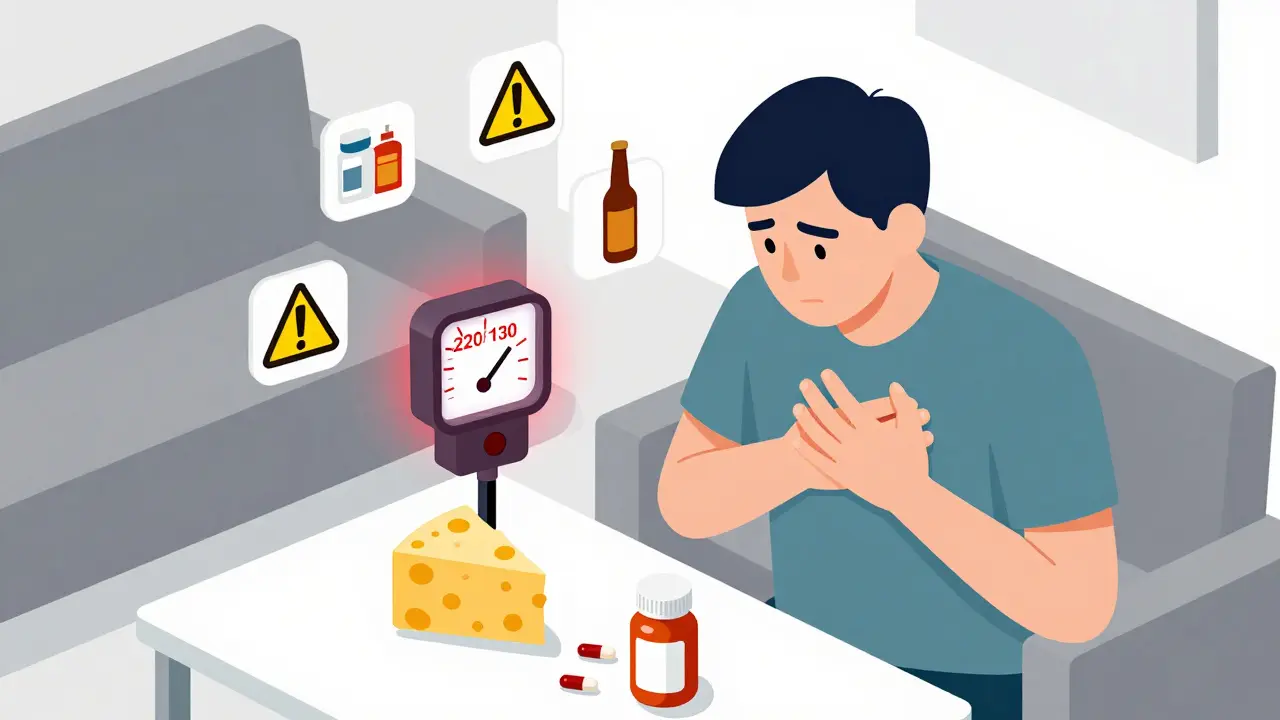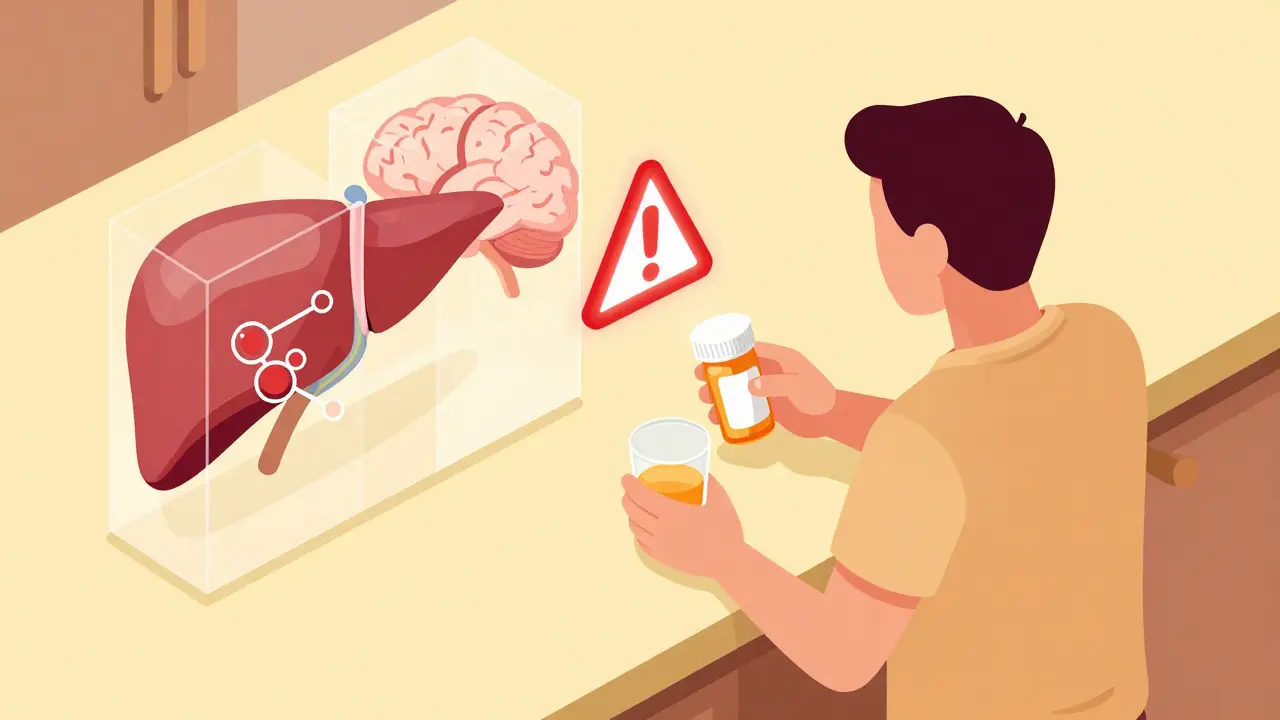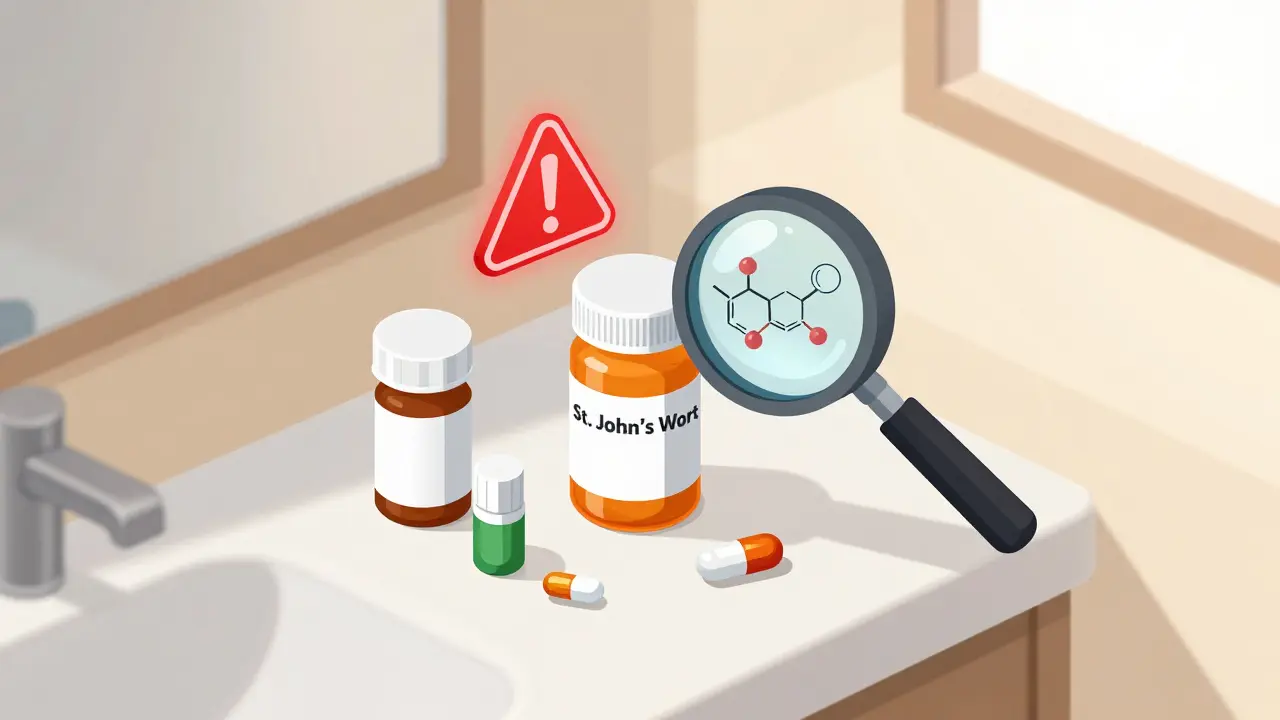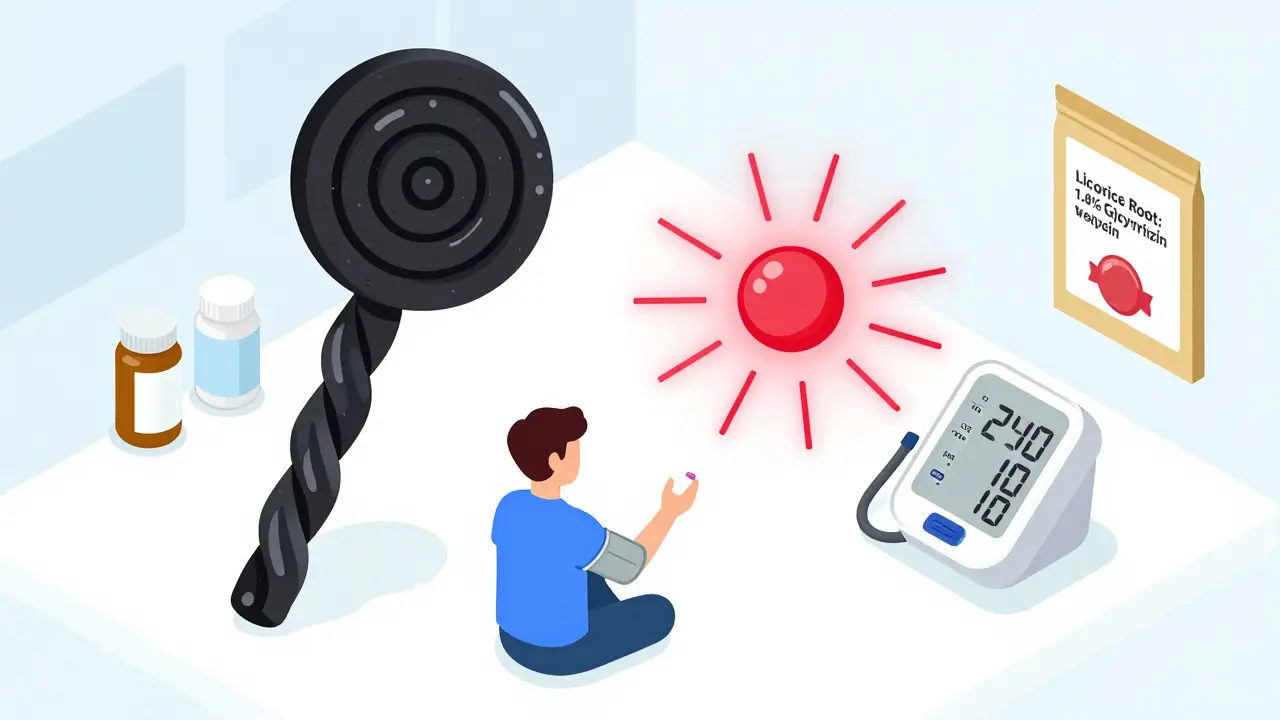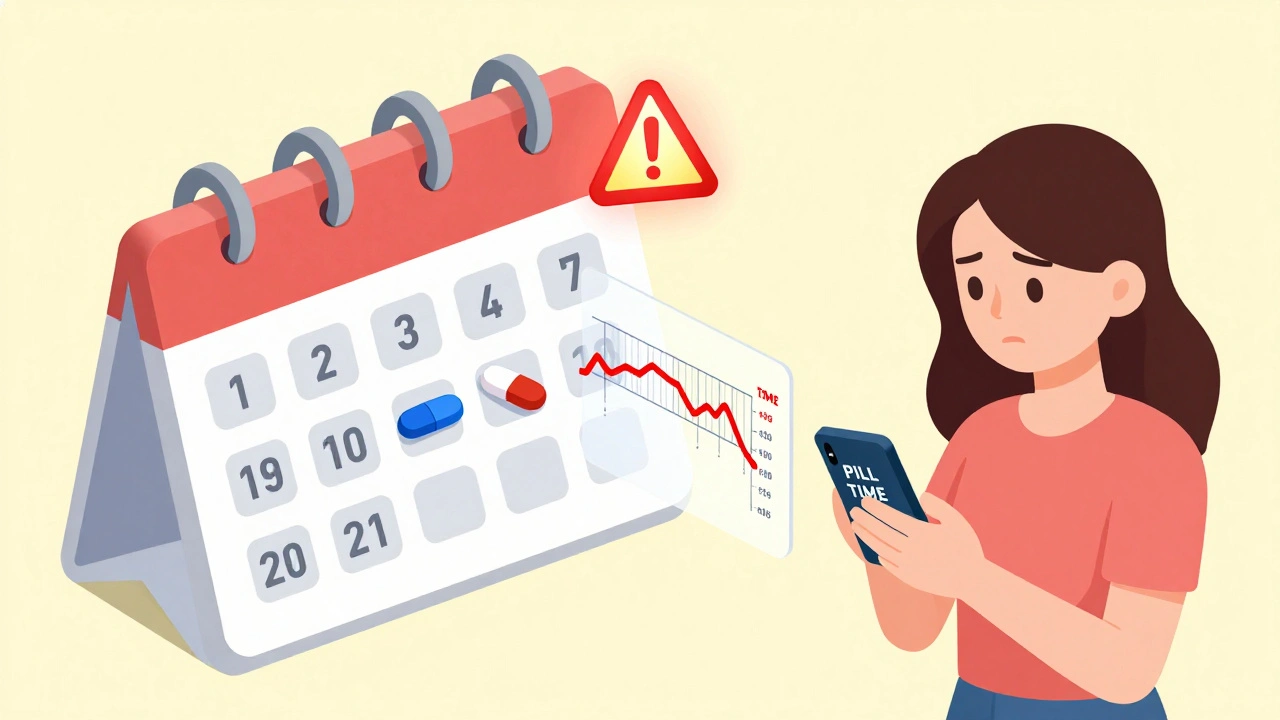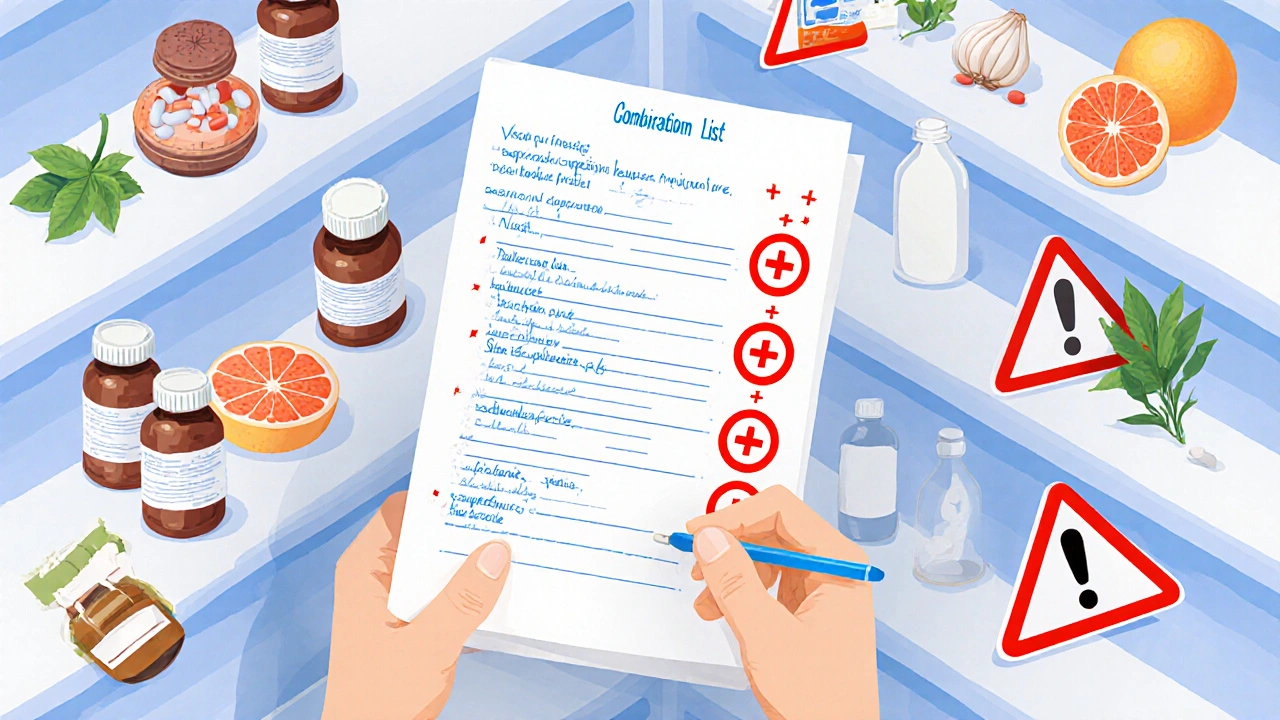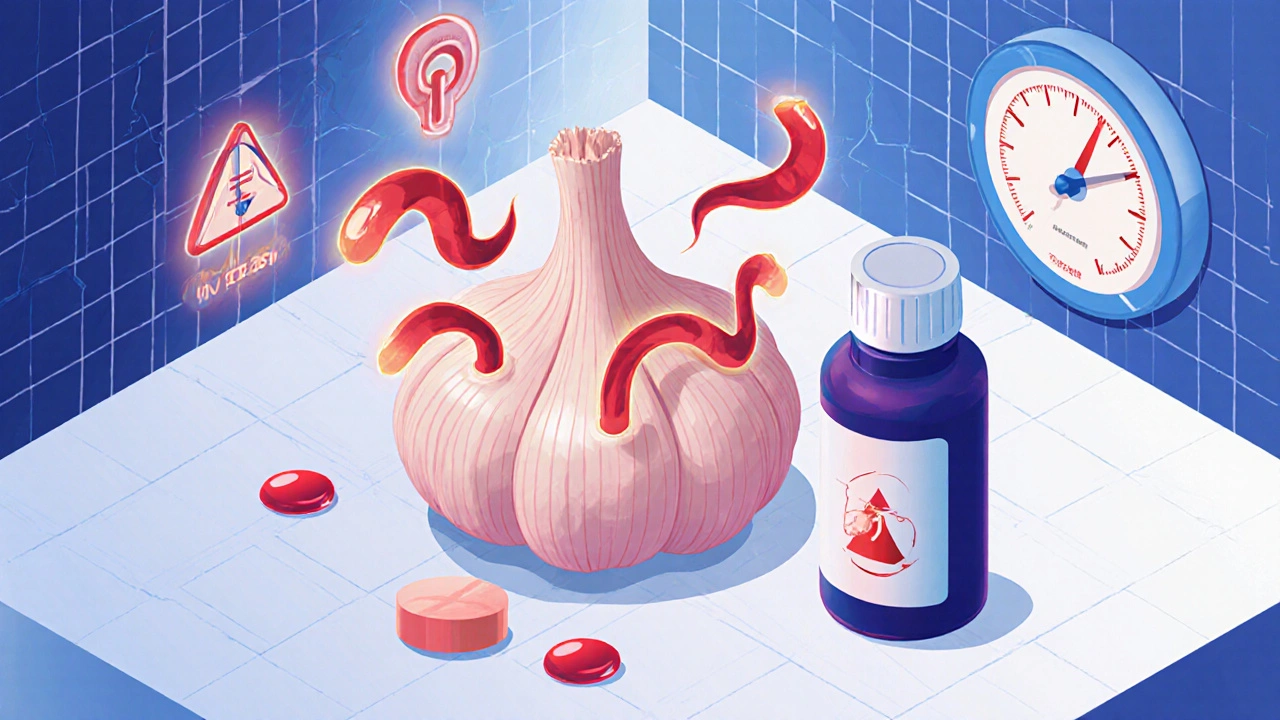Drug interactions: what they are and why they matter
Drug interactions happen when one medicine changes how another works or increases side effects. That can be from prescription drugs, over-the-counter pills, herbal supplements, or even food and alcohol. Some interactions are mild. Others can cause serious problems like low blood pressure, bleeding, dangerously low blood sugar, or heart issues. Knowing the usual suspects helps you stay safe.
Common types and real examples
Here are the interaction types you’ll see most often, with examples you might recognize from our articles.
1) Drug-drug: Two meds change each other. For example, celecoxib (Celebrex) can raise bleeding risk if you take it with blood thinners. Terbinafine (Lamisil) can change how blood thinners and some antidepressants are processed. Fluoxetine (Sarafem) plus certain migraine drugs or MAOIs can cause serotonin syndrome — that’s a dangerous mix.
2) Drug-food: Some foods alter drug levels. Grapefruit juice is famous for this; it can boost levels of certain heart and cholesterol meds. Alcohol can worsen side effects of painkillers or antidepressants and make blood sugar control harder for diabetes drugs like Rybelsus.
3) Drug-herbal and supplements: Herbal immunity boosters, St. John’s wort, or other supplements aren’t harmless. St. John’s wort speeds up liver enzymes and can make birth control pills, some antidepressants, and other meds less effective. Even lesser-known supplements like quassia or boxwood might interact — we don’t always have full studies, so treat them like real drugs.
4) Drug-disease: Your health conditions matter. ACE inhibitors like enalapril (Vasotec) can raise potassium — risky if you already have kidney problems or take potassium supplements. NSAIDs can blunt blood pressure meds. Tell your provider about chronic issues like Crohn’s or liver disease before starting new meds.
Simple steps to avoid problems
Keep a single, up-to-date list of everything you take — prescriptions, OTC, vitamins, herbs. Share it at every doctor or pharmacy visit. Use an interactions checker or ask a pharmacist to review new combos. Don’t start or stop supplements suddenly, and be careful with alcohol and grapefruit. If a new medicine makes you dizzy, faint, bleed more, or feel confused, call your doctor right away.
If you order meds online, pick reputable pharmacies and double-check the product names and doses. When using telemedicine, have your med list ready — our article on saving with telemedicine offers tips on organizing prescriptions and coupons without missing safety checks.
Questions about a specific drug? Look up trusted pages on this site like our pieces on Keflex, Celebrex, Vasotec, or Rybelsus for interaction notes — and always confirm with your prescriber. A little attention now prevents big problems later.
Severe hypertensive crisis from drug interactions can strike suddenly, even from common medications or OTC products. Learn the hidden triggers, how to prevent them, and what to do in an emergency.
View More
Learn how alcohol can dangerously interact with common medications, from antibiotics to painkillers. Discover which drugs to avoid with alcohol, real-world risks, and practical steps to stay safe based on current medical guidelines.
View More
Many people assume supplements are safe because they're natural, but they can cause serious harm - especially when mixed with medications. Learn the hidden risks, dangerous interactions, and how to protect yourself.
View More
Licorice candy may seem harmless, but its active ingredient glycyrrhizin can dangerously interact with blood pressure meds, diuretics, and heart drugs-causing high BP, low potassium, and even life-threatening side effects.
View More
Birth control pills are widely used but not foolproof. Learn how effective they really are, what side effects to expect, which medications can interfere, and who should avoid them.
View More
Learn how to check for drug interactions before starting new medications with practical, step-by-step advice to avoid dangerous side effects, hospitalizations, and even death. Essential for anyone on multiple prescriptions.
View More
Garlic supplements can dangerously increase bleeding risk when taken with blood thinners like warfarin or apixaban. Learn why culinary garlic is safe-but supplements are not-and what steps to take to stay protected.
View More
Fluoxetine, an SSRI, is predominantly prescribed to treat depression, OCD, and anxiety. This article explores its medical benefits, potential side effects, and possible interactions with other substances. Proper dosage and recommendations for safe usage will be discussed, offering a comprehensive understanding of this widely-used medication. Discover how Fluoxetine can affect your mental health and obtain valuable tips for optimal results.
View More

